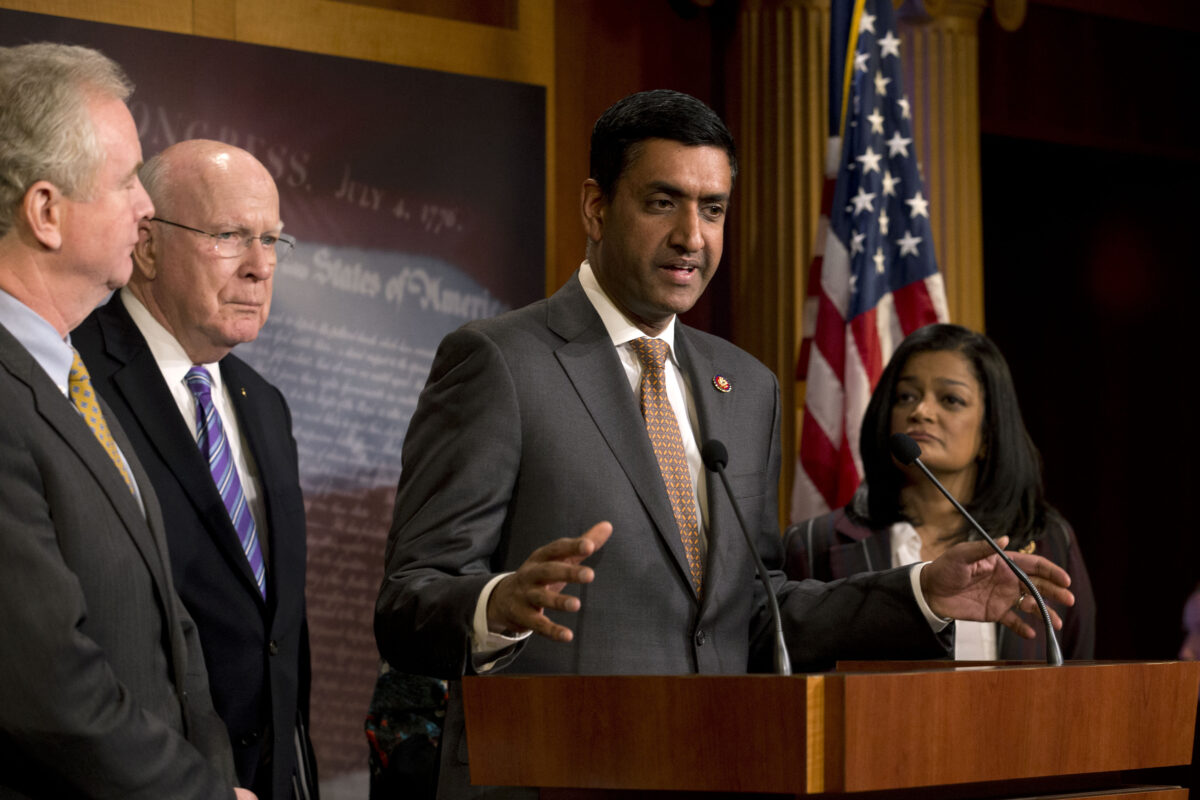The House of Representatives is considering H.R. 8665, the “National Archives and Records Administration (NARA) Act of 2022.”
The purpose of this proposal, according to congress.gov., is to remove “gendered pronouns from the United States Code pertaining to the responsibilities of the Archivist and other senior officials at NARA.”
The NARA bill was originally introduced in August by Rep. Ro Khanna (D-Calif.) with bipartisan support, including Yvette Herrell (R-N.M.) and Byron Donalds (R-Fla.) as well as Gerald Connolly (D-Va.), Katie Porter (D-Calif.), Carolyn Maloney (D-N.Y.), and Danny Davis (D-Ill.).
While the NARA bill was referred out of the House Oversight and Reform Committee and brought to the floor on Dec. 12 on a suspension of the rules, the action was postponed until Dec. 13 for reasons that aren’t entirely clear.
Spokesmen for Khanna, Herrell, and Donalds, didn’t respond by press time to a request by The Epoch Times for comment.
The proposal itself was listed on the daily morning notice issued by House Majority Leader Steny Hoyer (D-Md.) amid a lengthy listing of Post Office namings and renamings, plus a measure authorizing the French Embassy to create “a memorial in the District of Columbia to honor the extraordinary contributions of Jean Monnet to restoring peace between European nations and establishing the European Union …”
The proposal, according to the official text, concerns every instance in the U.S. Code where a gendered pronoun is used with reference to the National Archivist or any other senior NARA official.
For example, the bill provides that “in section 710, by striking ‘his approval’ and inserting ‘approval by the President.’”
Similarly, in Section 2810, “by striking ‘transferred to him’ and inserting ‘transferred to the Archivist.’’’
And also in Section 2810, “by striking ‘his custody’ and inserting ‘the custody of the head of the Federal agency.’’’
The proposal contains another 21 similar provisions.
During the House’s Dec. 12 session, District of Columbia Delegate Eleanor Holmes Norton moved to suspend the rules and pass the proposal. It was then considered under suspension for what was supposed to be 40 minutes of debate.
But after a mere five minutes, according to congress.gov, “the Yeas and Nays were demanded and ordered. Pursuant to the provisions of clause 8, rule XX, the Chair announced that further proceedings on the motion would be postponed.”
In other words, the vote was put off.
Under House rules, the recorded vote for or against final passage could take place at a later date or never, but when it does, two-thirds of the members present on the floor must vote for it to be approved.
The delay may reflect concern by House Democrat leaders that there may not be enough votes to pass the proposal or it may simply reflect the logjam of proposals—big and small, hugely significant to the nation’s future and totally irrelevant to anybody but those immediately concerned—facing the House in the closing hours of the lame duck session of the 117th Congress.
House Republicans are demanding recorded votes on virtually every proposal coming before the House, which further slows down the grinding of legislative wheels.
In an Aug. 5 statement announcing the introduction of the proposal, Khanna claimed that the language changes “will allow the important work being done by everyone at NARA to be recognized.”
Khanna added that “It is past time that everyone, regardless of gender, is given the same recognition at the National Archives. Replacing this outdated language is the least we can do to acknowledge the valuable contributions of thousands who have worked at NARA since its creation in 1934 and thousands more who will work there in the years to come.”
Similarly, Donalds said in the same statement that NARA “plays an integral role in our nation’s history and future. This bipartisan bill seeks to update antiquated language to recognize not only the devoted men of the NARA but also hardworking women who’ve contributed to this government agency.”
Herrell was quoted in the statement as saying, “I am glad to work with my colleagues on the Oversight and Government Committee to modernize the United States Code in a commonsense and bipartisan fashion. It is important that we offer legislative remedies to ensure our code is more consistent across the board.”
A freshman member of the 117th Congress, Herrell lost her bid for a second term in the November midterm election by about 1,300 votes.
